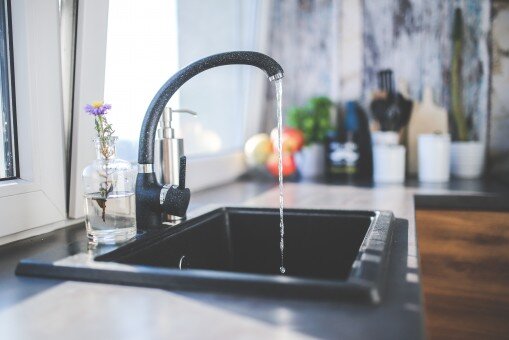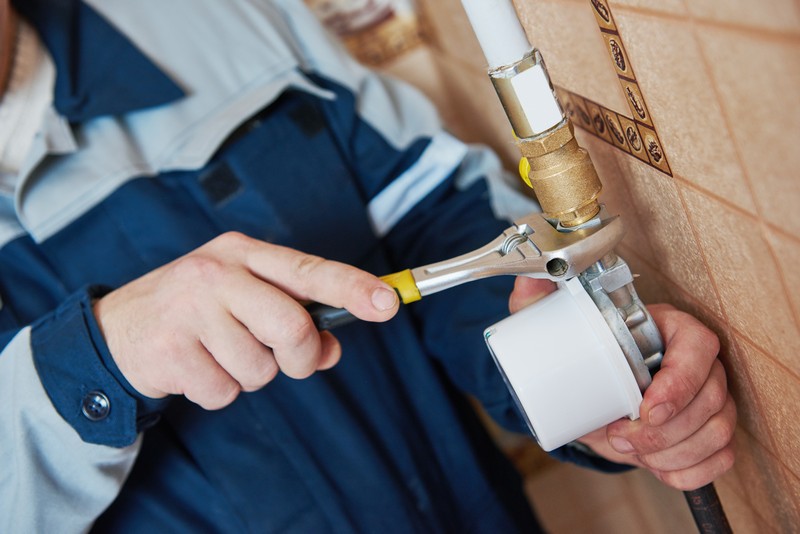Expecting the Upcoming Era of Plumbing: Trends and Advancements
Expecting the Upcoming Era of Plumbing: Trends and Advancements
Blog Article
Just about every person maintains his or her own conception in relation to The Future Of Plumbing: Trends And Technologies To Watch.

Intro
The plumbing sector is going through a transformative phase driven by technical improvements and growing worries for sustainability and effectiveness. This short article discovers arising fads and advancements shaping the future of plumbing.
Smart Plumbing Systems
Integrating clever modern technology right into plumbing systems enables remote tracking, leakage discovery, and automated maintenance. Smart sensors and IoT (Internet of Points) gadgets allow homeowners and plumbings to check water use and detect issues in real-time, bring about extra effective source monitoring and aggressive upkeep.
Water Efficiency Solutions
With boosting emphasis on water preservation, ingenious options are being developed to minimize water wastefulness in pipes systems. High-efficiency fixtures, greywater recycling systems, and clever irrigation controllers are amongst the innovations helping consumers minimize their water footprint while maintaining convenience and comfort.
Sustainable Products
The change towards sustainability extends to pipes materials, with a growing choice for green alternatives. Eco-friendly piping materials, such as PEX (cross-linked polyethylene) and HDPE (high-density polyethylene), offer resilience and resistance to corrosion without compromising ecological stability.
Anticipating Maintenance
Anticipating maintenance strategies utilize data analytics and machine learning algorithms to anticipate and avoid pipes problems before they occur. By examining historical information and performance metrics, predictive upkeep formulas can determine patterns and anomalies, enabling positive interventions to avoid pricey repairs and interruptions.
Augmented Reality in Pipes
Enhanced Fact (AR) technology is transforming pipes by providing professionals with real-time aesthetic guidance for troubleshooting and repair work tasks. AR-enabled wise glasses or mobile applications overlay electronic details onto the physical setting, aiding plumbings imagine pipe layouts, identify surprise leakages, and carry out repair services with precision.
Impact of 3D Printing
The advent of 3D printing has actually presented new possibilities in making pipes components. From custom-made components to elaborate pipeline fittings, 3D printing allows for quick prototyping and on-demand production, reducing preparations and enabling better personalization in pipes design.
Health And Wellness Features
In feedback to heightened worries for health and safety, plumbing components are including features such as antimicrobial surface areas, touchless procedure, and self-cleaning mechanisms. These developments not just boost health but also promote individual convenience and benefit.
Hygiene-focused Components
Touchless faucets, self-sanitizing bathrooms, and antimicrobial surfaces are ending up being increasingly widespread in domestic and business setups, minimizing the threat of germ transmission and promoting a cleaner, much healthier setting.
Water High Quality Surveillance
Innovations in water quality surveillance innovations enable homeowners to monitor the purity and security of their supply of water in real-time. Smart water top quality sensing units can identify impurities, pH levels, and temperature variations, empowering customers to take proactive measures to ensure water security.
Remote Pipes Providers
Remote diagnostics and virtual support are revolutionizing the way pipes services are delivered. Through video conferencing and remote accessibility technologies, plumbing technicians can fix concerns, give guidance for DIY repair work, and also do remote examinations, using greater accessibility and comfort to property owners.
Challenges and Opportunities
While pipes developments hold enormous assurance, they also present difficulties such as data privacy issues, governing compliance, and the demand for workforce training. Dealing with these obstacles calls for collaboration in between industry stakeholders and regulatory bodies to make certain risk-free and liable execution of new innovations.
Regulative Landscape
Governing structures play a vital duty in shaping the adoption of plumbing technologies, with requirements and codes controling everything from water effectiveness to item safety and security. As technologies continue to progress, governing bodies must adjust to make certain customer protection and environmental stewardship.
Future Outlook
The future of plumbing is characterized by continued development and combination with other industries such as IoT, renewable energy, and building automation. By embracing sustainable techniques, leveraging arising innovations, and prioritizing user-centric design, the pipes sector is positioned to deal with the evolving demands of culture while reducing its environmental impact.
Conclusion
Finally, the future of pipes is defined by a merging of technology, sustainability, and user-centric layout. By accepting clever services, lasting materials, and aggressive maintenance techniques, the plumbing market can enhance effectiveness, promote safety, and add to a much more lasting future.
Plumbing Industry Trends You Need To Know
Smart technology in plumbing
Homeowners want to be able to manage their homes from their phones. The technology exists to make that happen. From smart toilets to leak detector devices, the whole plumbing system can be managed on an interconnected network made up of sensors, IoT devices, and machine learning algorithms.
This allows for wireless control to turn appliances on and off, automate routines, and access advanced monitoring to track water usage and flag potential issues. Smart technology streamlines water consumption, maintenance and energy usage, creating a more efficient system.
Green plumbing
The data analysis possible with smart technology not only improves convenience and cost-effectiveness but also fulfills a high-priority customer desire – sustainability. Consumers are very aware of their impact on the planet and want plumbing solutions to reduce damage and support sustainability. Eco-friendly plumbing solutions are already starting to emerge.
Customers can opt for low-flow toilets, water-saving faucets, and connections to sustainable energy sources. Beyond monitoring water consumption, customers can conserve water through the installation of greywater systems. This is a system that collects water that has been used but is still clean enough for some household uses such as toilet flushing.
Shorter product pipeline
To keep up with modern plumbing, plumbers need modern tools that enable them to complete jobs more efficiently. One technology making strides in this area is 3D printing. By 3D printing key plumbing fixtures, plumbers can reduce wait times even for specialized fixtures. It minimizes delays often seen in traditional manufacturing that frustrate customers and prevent plumbers from taking on more work.
Off-site repairs
Augmented reality is making a splash in many industries including plumbing. Plumbers can map a building online so they can explore the plumbing system through augmented reality, identifying areas of maintenance and repair completely digitally. This technology can be applied quite widely in plumbers’ work including planning installations and training new recruits. It’s safer, smarter and more efficient.
Low-footprint materials
Another way for plumbing companies to reduce their environmental footprint and meet the customer demand for sustainability is by using recycled materials in their work. The products they source and manufacture such as pipes, fixtures and faucets can be made from recycled materials. This saves the planet while being just as effective.
Onsite water purification
Additionally, plumbing companies can be advocates of water conservation and ease the financial and environmental concerns of customers by offering water purification systems. New water purification technology such as reverse osmosis systems and UV systems make it possible for homeowners and business owners to thoroughly cleanse water, removing contaminants onsite. This means the water can be safely reused in more ways than greywater can be, establishing a water recycling loop.
Tankless water heaters
Another innovation of modern plumbing is tankless water heaters. The idea is that the water is heated on demand as it runs through the system instead of being heated in a water tank. This is more energy efficient and therefore cost-effective and eco-friendly because water isn’t heated needlessly.

We were shown that report on 7 Plumbing Industry Trends You Need To Know through an associate on our other web page. Sharing is good. Who knows, you may be doing someone a favor. Thanks a bunch for your time. Don't hesitate to come by our site back soon.
Book Report this page